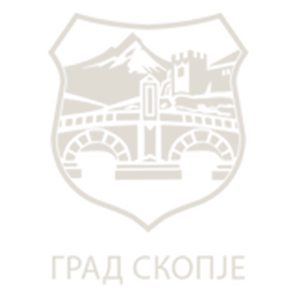As part of the rich cultural offer of the City of Skopje, as the capital of culture for 2028, the Cultural Information Center – Skopje has the special honor and pleasure to invite you to the promotion of the book “A View from the Outside: Racin (1908 – 1943)” by Goran Kalogera, on November 25th at 7:00 PM at Salon Imperial 2.
The book will be discussed by Prof. Dr. Slavco Kovilovski and Nove Cvetanoski, the editor of the edition.
The date of the promotion coincides with the publication day of the first edition of Koco Racin’s book “Beli Mugri” (White Clouds), and marks the 85th anniversary of the publication of this landmark book in modern Macedonian literature (November 25, 1939, in Samobor, Croatia).
As the author writes in the introduction to the book, Racin is his scientific challenge, for whom, as a young scholar, he attempted to reconstruct in detail his stay in Croatia and his associations with prominent anti-fascists, writers, artists, and political comrades. In the introductory part, Prof. Dr. Goran Kalogera writes about Racin as an intellectual, poet, novelist, journalist, critic, polemicist, and collector of oral folk literature, reflecting on his biography, his place, and his connection with Croatian culture and Croatia in general. The main part of the book is an analysis of Racin’s journalistic work, his prose, poetry (poems in Croatian/Serbo-Croatian), the cult book “Beli Mugri”, poems by Racin outside of collections and poetic cycles, and the collection of folk songs that Racin prepared before his death in 1943. At the end of the book, the author provides a concluding reflection. This is Kalogera’s second book about Koco S. Racin; the first was written at the beginning of his scholarly career.
“Rarely has a Macedonian poet attracted so much attention from theorists, literary historians, and philologists as Racin. Racin was a rock, a dam, a pioneer in the artistic expression of the mother tongue, a pillar and hope for many, a model of the ideal revolutionary, and in the end, a victim. He was a man of vision, he predicted many historical events, which, unfortunately, came true. He was the most honest and most honorable thing that Macedonians had between the two wars,” writes Kalogera about Racin.
In the foreword, Slavco Kovilovski writes:
“The work ‘A View from the Outside: Racin (1908-1943)’ by Goran Kalogera is powerful, expressive, filled with emotions, but also an achievement that provides an excellent picture of the time in which Racin lived, as well as of his personality. The analyses and syntheses presented are highly welcome for the wider Macedonian readership, and certainly for Croatian readers as well. In fact, the author builds yet another bridge of connection between Macedonians and Croats, in his recognizable style. He is direct in communicating his observations and views, which gives a special weight, beauty, and readability to the book. Finally, Kalogera concludes that, regardless of the temporal distance and relatively modest output of Racin, he still remains the most well-known Macedonian writer in Croatia. We will conclude as well, with the statement that Kalogera is one of the most renowned contemporary Macedonists, not only in Croatia but also on a European level.”
Goran Kalogera (Dubrovnik, 1951) is an external member of the Macedonian Academy of Sciences and Arts, an external member of the Writers’ Association of Macedonia, and an honorary doctor (Doctor honoris causa) at the “St. Cyril and Methodius” University in Skopje. He has served as Dean of the Pedagogical and Philosophical Faculties and Vice-Rector for Teaching and International Cooperation at the University of Rijeka. From 1980 to 1990, he was the first lecturer in Macedonian literature and Macedonian language courses at the Pedagogical Faculty in Rijeka. He is the founder and head of the Macedonian Language Department at the Faculty of Philosophy at the University of Rijeka. He holds a degree in Croatian studies (South Slavic Studies) and Comparative Literature. He completed his doctoral thesis on Macedonian-Croatian and Croatian-Macedonian literary relations at the Pedagogical Faculty in Rijeka.
Professor Kalogera’s professional and academic biography is impressive. He primarily deals with literary heritage, the history of literature, Rijeka literature, and, of course, Macedonian literature. He is one of the most prominent Macedonists in Croatia and the Balkans. He has published thirty-two books on literary-historical topics and over one hundred scientific and professional papers in the field of South Slavic comparative studies. Among his important works on Macedonism are “South Slavic Literary Intertwinings” (1991), “Croatian-Macedonian Literary Relations” (1988), “Racin in Croatia” (2000), “Comparative Macedonian-Croatian Studies” (2000), “Recognitions” (2004), “The Miladinov Brothers – Legend and Reality” (2001), “Comparative Macedonian-Croatian Studies” (2000), “Recognitions” (2007), “Contributions to the Study of Macedonian Literary History” (2009), “Macedonian 19th Century” (2011), “Macedonian-Croatian Connections” (2006), “Macedonian Themes Without Dilemmas” (2014), “Macedonians in the Primorje-Gorski Kotar County” (2016), “Macedonian Friendships” (2019).
For his contribution to the promotion of Macedonian literature, culture, and language, Kalogera has received several Macedonian awards, including the Order for Merits to Macedonia, the Honorary Racin Award for 2005, the St. Clement Medal, and an honorary doctorate (Doctor honoris causa) from the St. Cyril and Methodius University. Goran Kalogera also served as Honorary Consul of the Republic of Macedonia in the Republic of Croatia. After his retirement, he was declared Professor Emeritus at the University of Rijeka.
Kalogera is a proven friend of Macedonia and a strong advocate for the scientific truth about Macedonia. As a scholar, Slavicist, and Macedonist, he enjoys high regard both in Croatia and in Macedonia.

